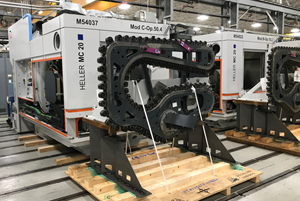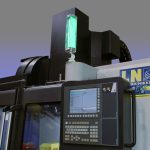As the car evolves, so must machine-tool builders
As the car evolves, so must machine-tool builders
Heller Group COO Manfred Maier and Heller Machine Tool president Keith Vandenkieboom describe and demonstrate ways a machine tool builder prepares for the future of mobility—whatever it turns out to be.
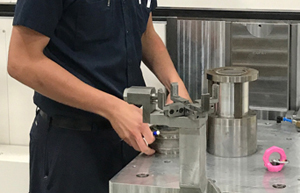
Heller Group COO Manfred Maier and Heller Machine Tool president Keith Vandenkieboom describe and demonstrate ways a machine tool builder prepares for the future of mobility—whatever it turns out to be.
On July 27, Heller Machine Tools kicked off its Manufacturing Tech Days event with an open house and tour for the press at its US headquarters in Troy, Mich. The Nürtingen, Germany-based parent company, Gebr. Heller Maschinenfabrik GmbH, or Heller Group, was founded more than 120 years ago—a timeline that tracks closely with that of the automobile, noted Heller Group COO Manfred Maier: The company has "practically grown up with the combustion engine."
Now, however, the design of the automobile—what it's made of, how its powered and controlled—is in flux. To meet the challenges posed by future mobility, including changes in the powertrain due to alternative engines, lighter weight major components, and more frequent automotive product changes and production volumes, the company has adopted a forward-thinking approach.
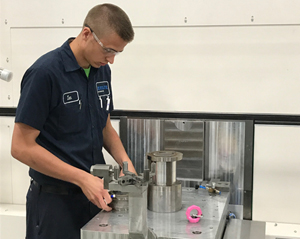 "In recent years, on average approximately 75% of the Heller Group's business came from the automotive industry. This includes passenger cars and trucks as well as agricultural and construction machinery," explained Maier. "Project business makes up about 60 percent of this, with the emphasis on cylinder blocks and heads, crankshafts and camshafts as well as transmission and chassis components."
"In recent years, on average approximately 75% of the Heller Group's business came from the automotive industry. This includes passenger cars and trucks as well as agricultural and construction machinery," explained Maier. "Project business makes up about 60 percent of this, with the emphasis on cylinder blocks and heads, crankshafts and camshafts as well as transmission and chassis components."
So, what are the options for a machine tool manufacturer, especially considering the fact that the future of mobility is said to be electric, thus resulting in a significant decrease in the number of machined components?
"The combustion engine is far from dead. We believe that in the near future, the mobility concept will comprise a combination of downsized combustion engines and electric drives," said Maier. "Our core competency will enable us to remain a sought-after partner for potential customers in the years to come." That core competency is designing long-lasting, dependable production solutions to provide the lowest possible cost per piece, he said. Typically they are turnkey flexible systems incorporating machining, part inspection, and material handling. "At the same time," he said, "we will increasingly search for new applications and complementary technologies."
While leading a facilities tour, Heller Machine Tools president and CEO Keith Vandenkieboom offered an example of a complementary technology that expands the company's machine portfolio: Cylinder Bore Coating (CBC) is based on the twin-wire arc spray technology used by Daimler and BMW in place of the cylinder liners traditionally used on lightweight engine blocks. So far, the coating technology is the only method providing the necessary process dependability for use in high-volume production, Vandenkieboom said during a demonstration of the process.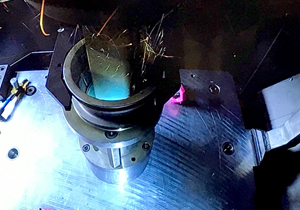
From 2017 onwards, Daimler will use it in the production of approximately one million 4- and 6-cylinder engines per year at their facilities in Untertürkheim, Germany, according to data provided by Heller; by 2018, a total of 65 systems for the coating of more than 8 million engines worldwide reportedly will be in operation.
On the facilities tour, Vandenkieboom noted that uncertainty about the future of the powertrain is expected to lead more manufacturers to want to redeploy existing capital equipment when possible rather than invest in new equipment. He pointed out a number of large Heller MC 20 modular horizontal machining centers that had been refurbished from the controls on out, and were ready for delivery back to their owner. "We expect to see more interest in this service, and we're ready," he said.
Maier said that the company will expand its presence in industries beyond automotive, but that the latter market is still a great place to be.
"Mobility, and also the machine tool industry, will definitely see changes but will continue to play a significant role in the future," Maier affirmed. "Heller Machine Tools is well-prepared for future mobility."
